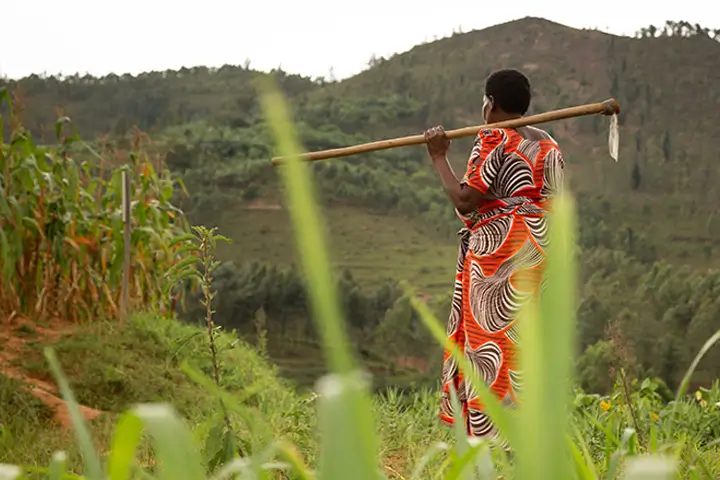
Farmers in Rwanda are set to receive valuable support through a UK-backed training program aimed at reducing post-harvest losses and increasing the sales of fresh produce. Over 100 fishers, community leaders, and farmers from across Rwanda will participate in this innovative initiative.
The training program is a collaboration between the Africa Centre of Excellence for Sustainable Cooling and Cold-chain (ACES) and experts from the UK, the Netherlands, and African countries. The program’s objective is to introduce clean cold-chain systems in Africa, ensuring that fresh produce reaches consumers in optimal condition while reducing greenhouse gas emissions, preserving natural resources, and enhancing the income of farmers and fishers.
Prof. Toby Peters, Director of the Centre for Sustainable Cooling at the University of Birmingham, highlights the importance of deploying sustainable technology to facilitate the transportation of fresh produce efficiently. By implementing the right practices, Rwanda aims to increase poultry meat production from 40,184 tonnes to 46,464 tonnes by 2024.
The training and knowledge building program will include workshops and collaborations with fishers, farmers, financiers, NGOs, policy-makers, and farmers’ organizations. ACES, the first center dedicated to sustainable cooling and cold-chain for food and health, aims to accelerate the deployment of sustainable connectivity in the food and health sectors.
This program is part of Rwanda’s efforts to unlock its economic potential and promote resilient and sustainable development. By equipping farming and fisher communities with the necessary knowledge and skills, the country aims to enhance its role in the local and global food value chain. The training will cover various aspects of cold-chain systems, empowering communities to build and operate financially sustainable cold-chains and community cooling hubs.
In addition to benefiting farmers and fishers, the program will also contribute to reducing food loss, supporting the distribution of vaccines and blood, and meeting the global demand for safe, healthy, and affordable food. Cold-chains are crucial to minimizing food loss, which can reach as high as 50% in many African countries. By integrating clean cold-chain systems, small-holders can increase their incomes up to five-fold, positively impacting their livelihoods.
The program is supported by academic partner institutions such as the University of Birmingham, the University of Rwanda, and international institutions from Kenya, the UK, and the Netherlands. Funding from the UK Government’s Department for Farming and Rural Affairs (Defra) has enabled ACES to provide technical assistance and support the development of Centers of Excellence in India as well.
Through capacity building, knowledge sharing, and the development of skilled refrigeration engineers, this program aims to create a network of sustainable cold-chain and cooling services in Rwanda. By adopting climate-friendly refrigerants and sustainable practices, Rwanda can enhance the resilience and sustainability of its supply chains and contribute to a more prosperous future for its farming and fishing communities.
Stay updated with the latest farming tips and agriculture industry news from Africa by subscribing to our newsletter. Don’t miss out on valuable insights and updates. Follow us on Twitter, LinkedIn, and Facebook to join our farming community and stay connected with us.



















